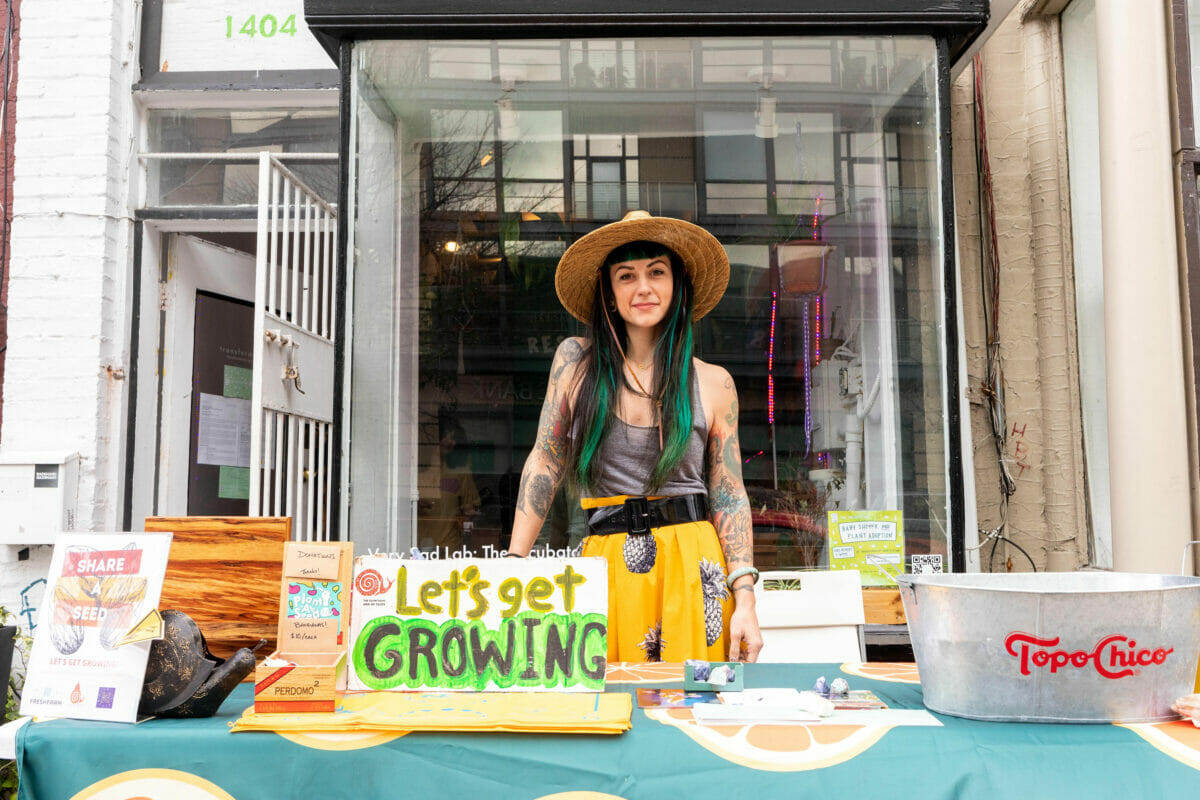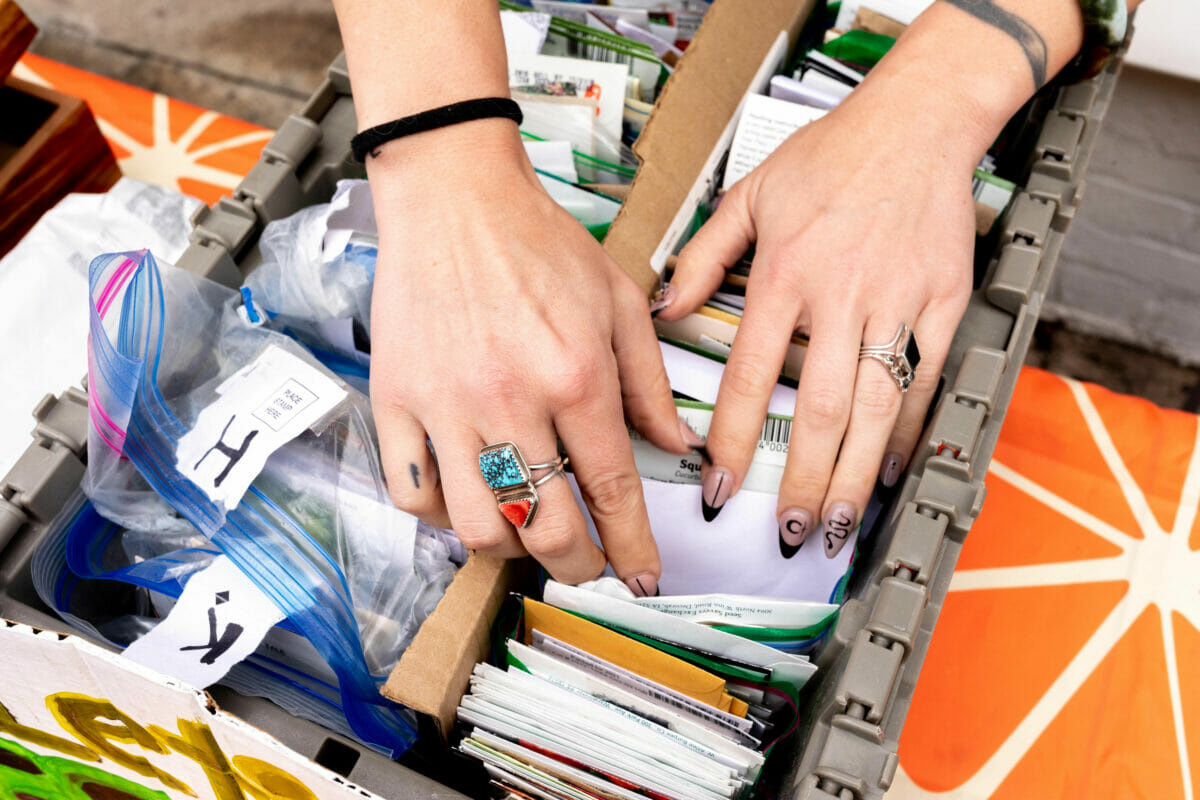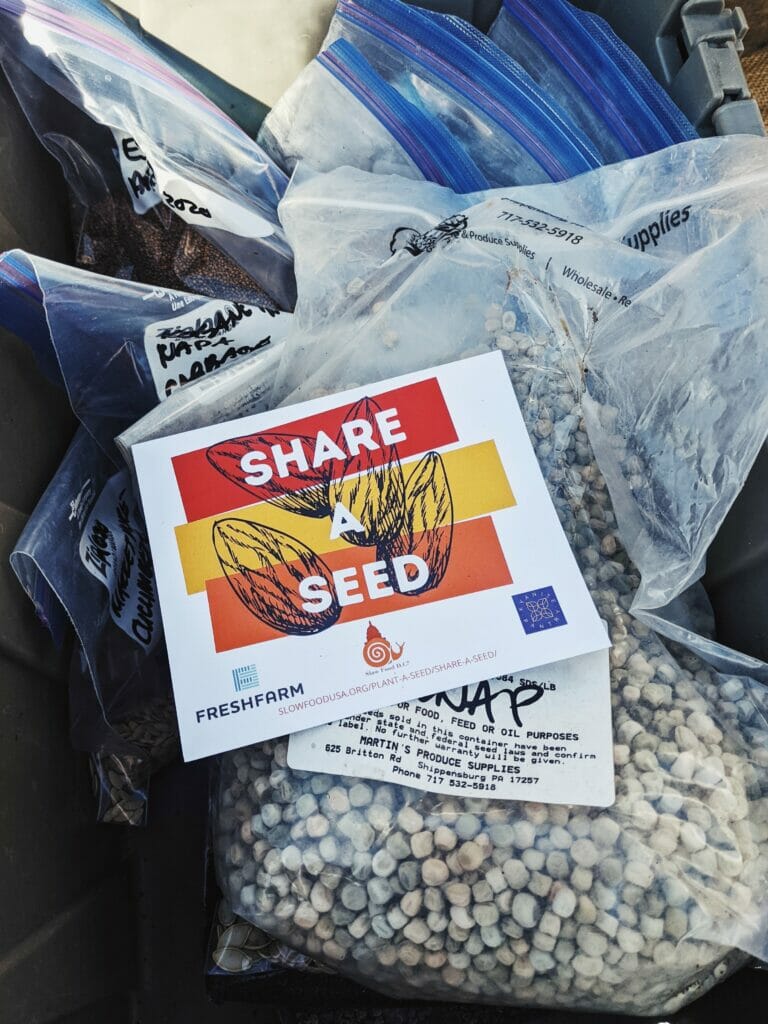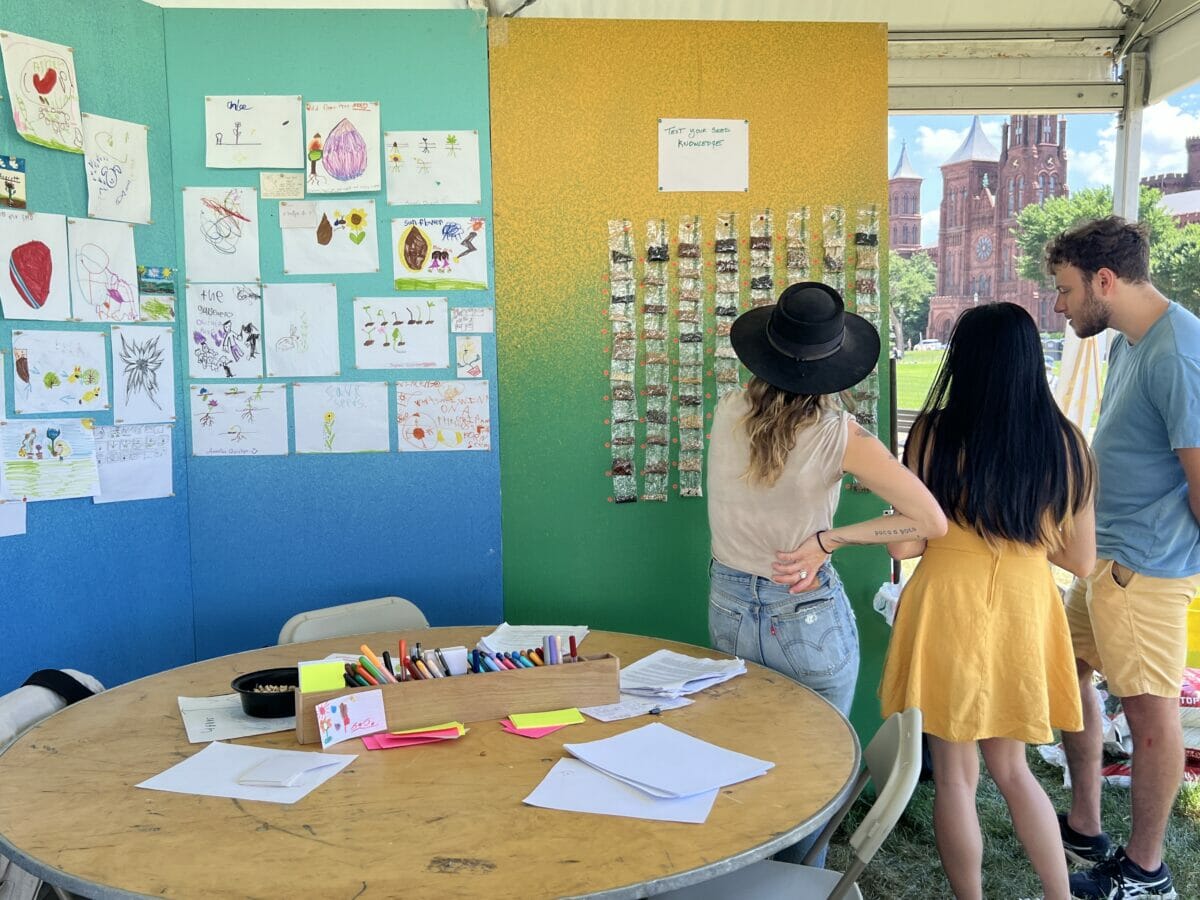When Sharing Seeds Grows More Than Just Food
In Washington, DC, a program seeks to foster abundance through seed-sharing.
When Sharing Seeds Grows More Than Just Food
In Washington, DC, a program seeks to foster abundance through seed-sharing.

In the early days of the pandemic, Share a Seed founder Reana Kovalcik found a way to bring curious community members into the world of gardening.courtesy of Share a Seed.
In early 2020, at the peak of the COVID-19 pandemic, when doors of storefronts across the country were closed and minds of isolated individuals were opening to the possibilities of gardening in their new-found free time, Reana Kovalcik had an idea.
The Washington, DC resident has a background in mutual aid work, public policy and over a decade of experience in the sustainable agriculture movement and watched as more and more people grew interested in gardening, growing and reconnecting to the land.
Kovalcik saw people reach for gardening as something they could do safely in their homes and yards during lockdown—be it as a therapeutic, social or emotional outlet or as a supplement to groceries in the face of supermarket scarcities. Not wanting to miss an opportunity to connect more people to growing food when interest was high but resources were not, Kovalcik founded Share a Seed, a mutual aid seed-sharing and gardening initiative aimed at connecting crop-curious community members—especially in lower-resourced communities—to seed surpluses.

“If you’re a gardener, grower or farmer, you know that you’re constantly sitting on some kind of surplus of something or another, especially as an urban grower where you don’t need every last seed,” says Kovalcik. And with her years of work in both mutual aid and agriculture, she saw a chance to connect both. “I thought, ‘Why can’t we apply the same mutual aid lens we have with essentials to gardening?’ And so that’s where the impetus for Share a Seed came from,” she says.
The program launched officially in February 2021 as part of Slow Food USA, of which Kovalcik is the DC board member.
The concept is simple but effective. The goal is to connect communities, especially those with fewer resources, to surplus—or, as Kovalcik explains it, “creating abundance in places of scarcity.” On the ground, that looks like growers, gardeners, and seed retailers donating resources they have a surplus of, such as seeds, soil or tools, to Share a Seed. The program then redistributes them at events throughout the District of Columbia, Maryland and Virginia.

While the main focus for the seeds is food crops, Share a Seed supplies an array of different plant seeds. “I would say people most commonly look for the staple stuff,” she explains. “So, tomatoes and peppers are really popular in this population. Given that we’re in the southeast, we also have a lot of excitement around collards and okra.”
She also always tries to have some herb seeds to share, as they are an accessible place for many people to start and can be grown inside an apartment or outdoors, as well as offering flower seeds.
Before sharing the seeds, Kovalcik works behind the scenes to collect them, requesting surplus seeds from companies or organizing in-person donation opportunities. The seeds end up at the programs booth at farmers’ markets, community gardens or whatever event is on the books for the day—which are usually posted to the Share a Seed social media pages.

Taking and donating the seeds at the booth is as easy as walking up and grabbing or dropping off a sealed seed bag. Think of those little free libraries where neighbors drop off books they no longer need just to share with passers-by who want them. The Share a Seed program mirrors that ideology, with those who have an abundance of seeds they have no use for passing them on to others.
In fact, one of Share a Seed’s most recent developments is a little library of its own. On the streets of DC, the program launched Little Seed Libraries, where community members can leave packages of excess seeds or those in need can take a few for themselves. The libraries—currently located at Powell Community Farm and UDC Bertie Backus Urban Food Hub—offer what Kovalcik calls “inclusive architecture,” meaning the cabinets full of free seeds are connected to a bench, inviting rest and a place to connect surrounding the donated seeds.
Keeping the initiative people-focused and hands-on at an in-person community level is integral to Share a Seeds’ mission. So, as far as the future of the program goes, Kovalcik says they welcome growth but are not actively seeking it.
“The goal is to share with this community and to inspire other folks to share with other communities. So, as a mutual aid organization, we’re able to really meet folks where they’re at and do this kind of ground-level work of connecting with people,” she says. “That’s the way in which I would like to grow, by being able to share with more folks, to spread our tendrils. But in terms of the traditional capitalist model of growth, I think we’re better suited to stay a community organization.”
Follow us
This work is licensed under a Creative Commons Attribution-NoDerivatives 4.0 International License.
Want to republish a Modern Farmer story?
We are happy for Modern Farmer stories to be shared, and encourage you to republish our articles for your audience. When doing so, we ask that you follow these guidelines:
Please credit us and our writers
For the author byline, please use “Author Name, Modern Farmer.” At the top of our stories, if on the web, please include this text and link: “This story was originally published by Modern Farmer.”
Please make sure to include a link back to either our home page or the article URL.
At the bottom of the story, please include the following text:
“Modern Farmer is a nonprofit initiative dedicated to raising awareness and catalyzing action at the intersection of food, agriculture, and society. Read more at <link>Modern Farmer</link>.”
Use our widget
We’d like to be able to track our stories, so we ask that if you republish our content, you do so using our widget (located on the left hand side of the article). The HTML code has a built-in tracker that tells us the data and domain where the story was published, as well as view counts.
Check the image requirements
It’s your responsibility to confirm you're licensed to republish images in our articles. Some images, such as those from commercial providers, don't allow their images to be republished without permission or payment. Copyright terms are generally listed in the image caption and attribution. You are welcome to omit our images or substitute with your own. Charts and interactive graphics follow the same rules.
Don’t change too much. Or, ask us first.
Articles must be republished in their entirety. It’s okay to change references to time (“today” to “yesterday”) or location (“Iowa City, IA” to “here”). But please keep everything else the same.
If you feel strongly that a more material edit needs to be made, get in touch with us at [email protected]. We’re happy to discuss it with the original author, but we must have prior approval for changes before publication.
Special cases
Extracts. You may run the first few lines or paragraphs of the article and then say: “Read the full article at Modern Farmer” with a link back to the original article.
Quotes. You may quote authors provided you include a link back to the article URL.
Translations. These require writer approval. To inquire about translation of a Modern Farmer article, contact us at [email protected]
Signed consent / copyright release forms. These are not required, provided you are following these guidelines.
Print. Articles can be republished in print under these same rules, with the exception that you do not need to include the links.
Tag us
When sharing the story on social media, please tag us using the following: - Twitter (@ModFarm) - Facebook (@ModernFarmerMedia) - Instagram (@modfarm)
Use our content respectfully
Modern Farmer is a nonprofit and as such we share our content for free and in good faith in order to reach new audiences. Respectfully,
No selling ads against our stories. It’s okay to put our stories on pages with ads.
Don’t republish our material wholesale, or automatically; you need to select stories to be republished individually.
You have no rights to sell, license, syndicate, or otherwise represent yourself as the authorized owner of our material to any third parties. This means that you cannot actively publish or submit our work for syndication to third party platforms or apps like Apple News or Google News. We understand that publishers cannot fully control when certain third parties automatically summarize or crawl content from publishers’ own sites.
Keep in touch
We want to hear from you if you love Modern Farmer content, have a collaboration idea, or anything else to share. As a nonprofit outlet, we work in service of our community and are always open to comments, feedback, and ideas. Contact us at [email protected].by Shea Swenson, Modern Farmer
August 6, 2022
Modern Farmer Weekly
Solutions Hub
Innovations, ideas and inspiration. Actionable solutions for a resilient food system.
ExploreExplore other topics
Share With Us
We want to hear from Modern Farmer readers who have thoughtful commentary, actionable solutions, or helpful ideas to share.
SubmitNecessary cookies are absolutely essential for the website to function properly. This category only includes cookies that ensures basic functionalities and security features of the website. These cookies do not store any personal information.
Any cookies that may not be particularly necessary for the website to function and are used specifically to collect user personal data via analytics, ads, other embedded contents are termed as non-necessary cookies.
Sounds great. I didn’t call it a “lockdown”. I called it “house arrest”, without due process, just another useless knee-jerk reaction to the Chinese Flu. Nobody remembers over three times as many died of cancer/heart disease during this period.